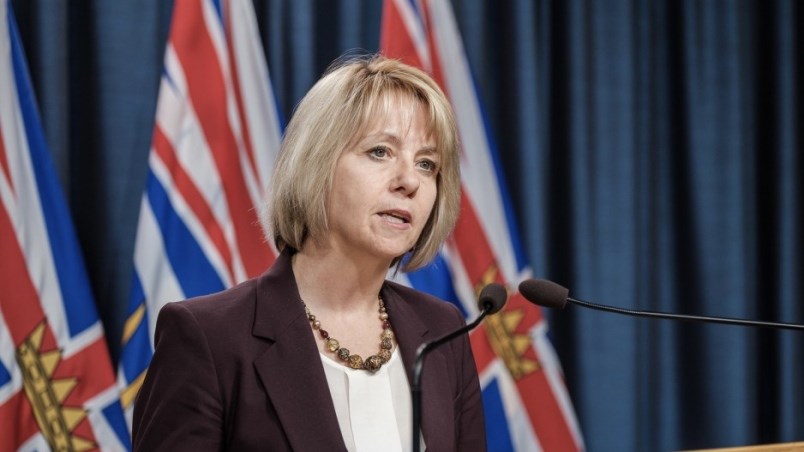Despite a significantly-lower infection rate, Northern B.C. will remain in lockstep with the rest of the province as it progresses through the lifting of restrictions designed to contain the COVID-19 pandemic, provincial health officer Dr. Bonnie Henry said Wednesday.
More than 80 per cent of the cases confirmed since the outbreak have been in the Lower Mainland and Fraser Valley while the region covered by Northern Health accounts for just 2.4 per cent.
But Henry confirmed one standard will be applied to the entire province and suggested those proportions could change drastically. She said there are hundreds of people who have come into contact with those confirmed cases and could end up developing the disease themselves.
"There is no community in this province that has not been affected...so these measures we really do need to take across the province," she said and noted cases have shown up in communities that have taken steps to keep non-residents out.
"This virus doesn't recognize our geopolitical boundaries so we have to be careful and take these precautions across the province and quite frankly, across the whole continent as we've seen," Henry said.
Her comments came during a technical briefing on the provincial government's plan to gradual lift restrictions on starting in mid-May beginning with certain health services, retail outlets, restaurants, salons and museums.
All of the government's reopening plans are contingent on organizations developing proposals that follow provincial guidelines to control the spread of COVID-19.
Hotels, resorts and parks would follow in June, with some entertainment venues opening again in July, but not large concerts.
A mix of online and classroom post-secondary education is planned for September, along with classes returning for students in kindergarten to Grade 12.
Conventions, large concerts, international tourism and professional sports with a live audience will not be allowed to resume until either a vaccine is widely available, community immunity has been reached, or effective treatment can be provided for the disease.
Guidelines for social gatherings are also in the plan. People will be asked to limit their get-togethers to six people and to practice safe physical distancing while those who show symptoms of the disease will be encouraged to self-isolate as in the past.
The same goes for those thinking of going to work despite being sick.
"This is a fundamental shift for us because in most organizations, we come in with our colds, we come in at the beginning of flu, and then take days off later," deputy health minister Stephen Brown said during the briefing.
"It's going to be absolutely critical for us getting through the fall and winter that that becomes a new social norm - you do not go into work with a cold or flu symptoms or obviously COVID-19."
He said the government is working with businesses to support encouraging employees to stay home and more on this "key policy direction" will be made public in the coming weeks.
As of Tuesday, the running count stood of confirmed cases stood at 2,255 with 1,494 recoveries and 127 deaths.
For Northern Health, the accumulated total stood at 54, up three from the day before. Take away 46 recoveries and active cases stood at eight with three in hospital and two of them in critical care. No death have been reported in Northern Health.



